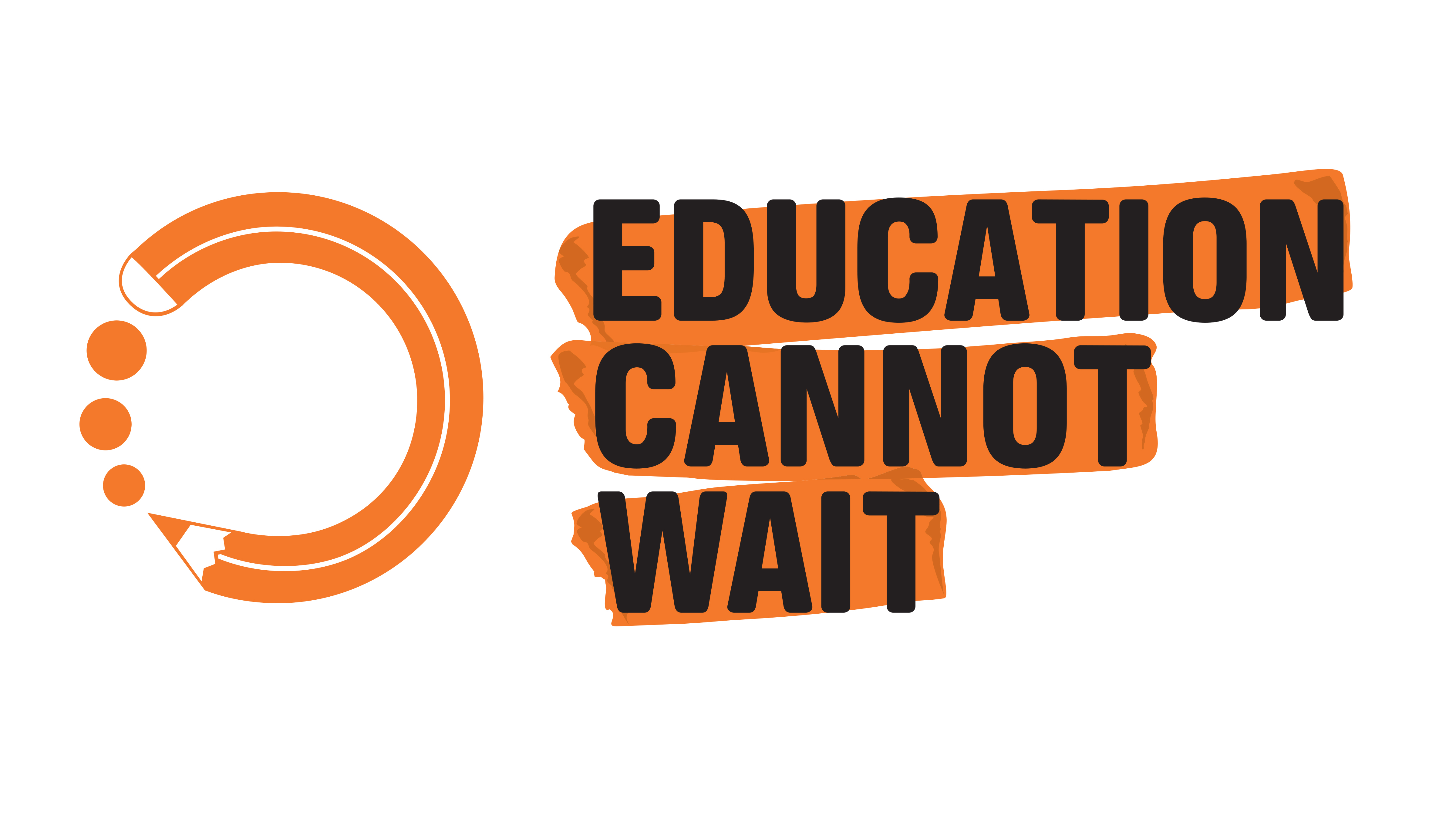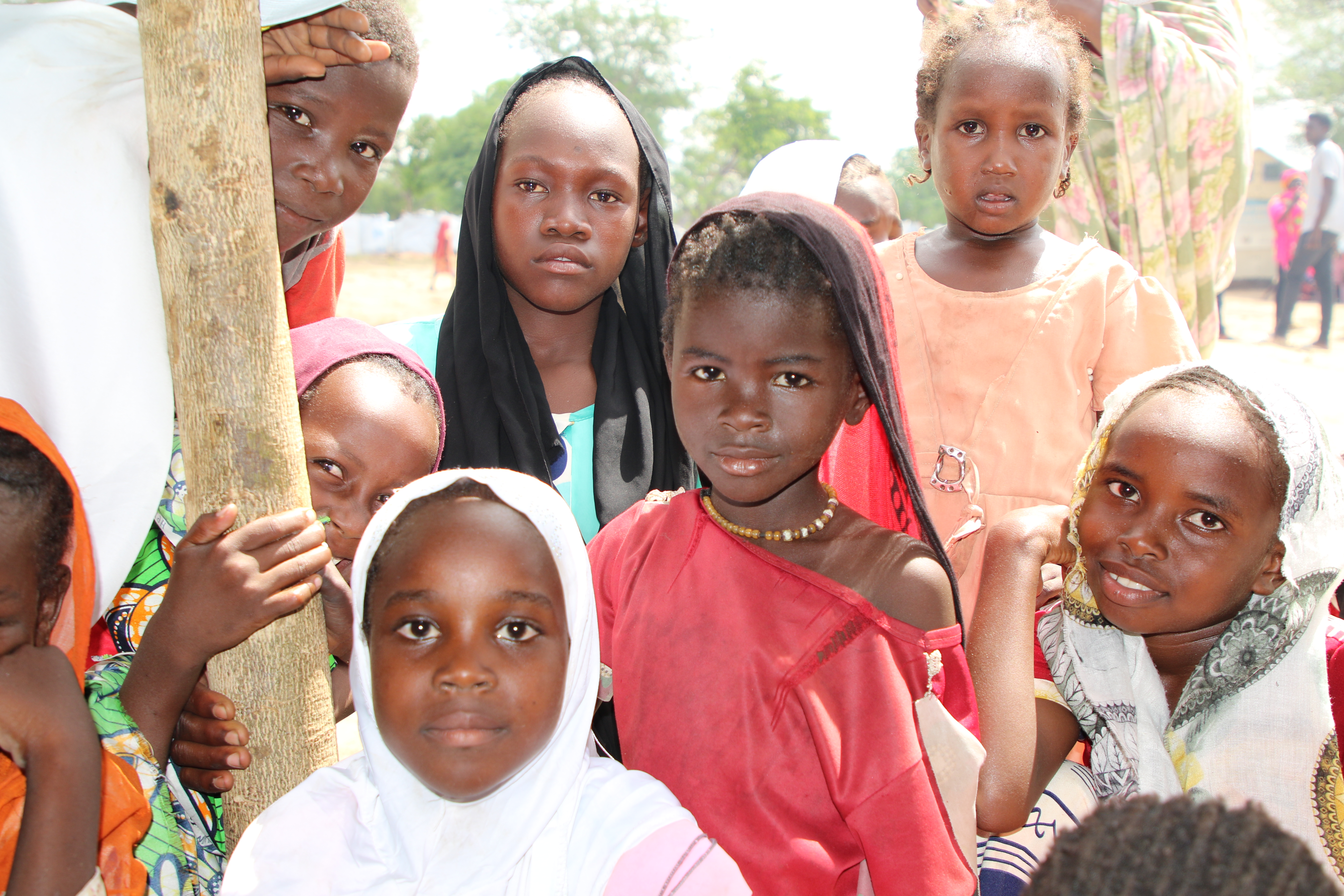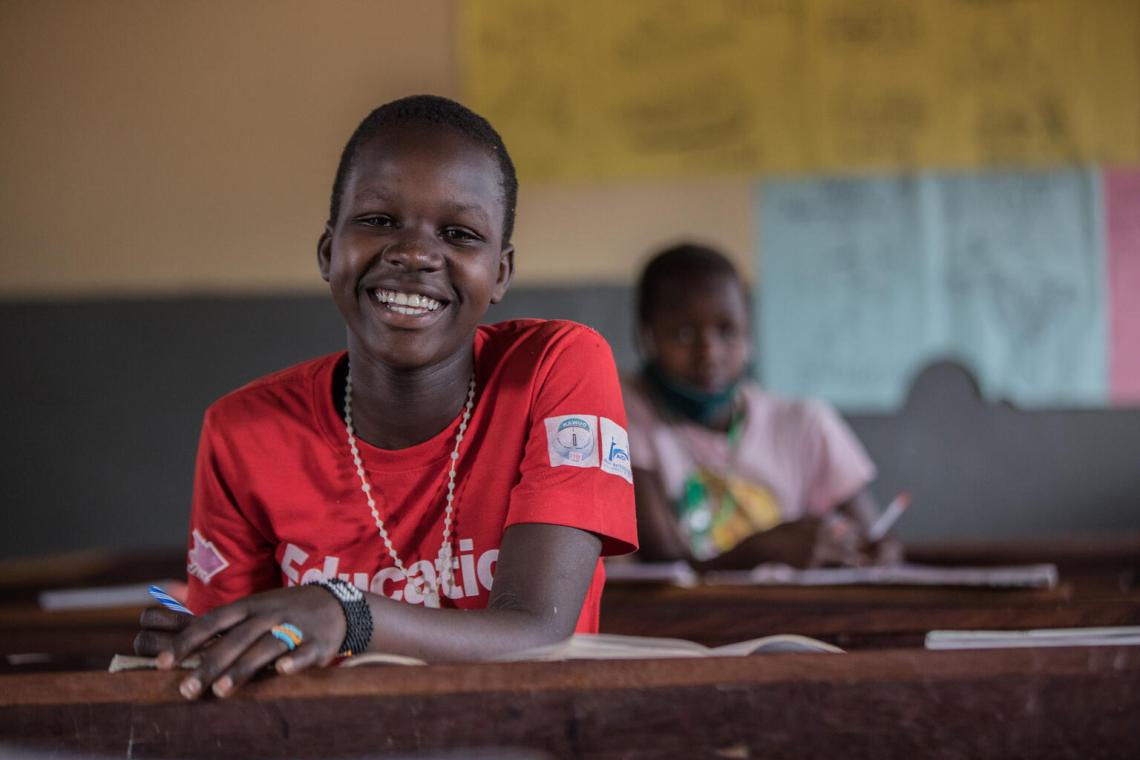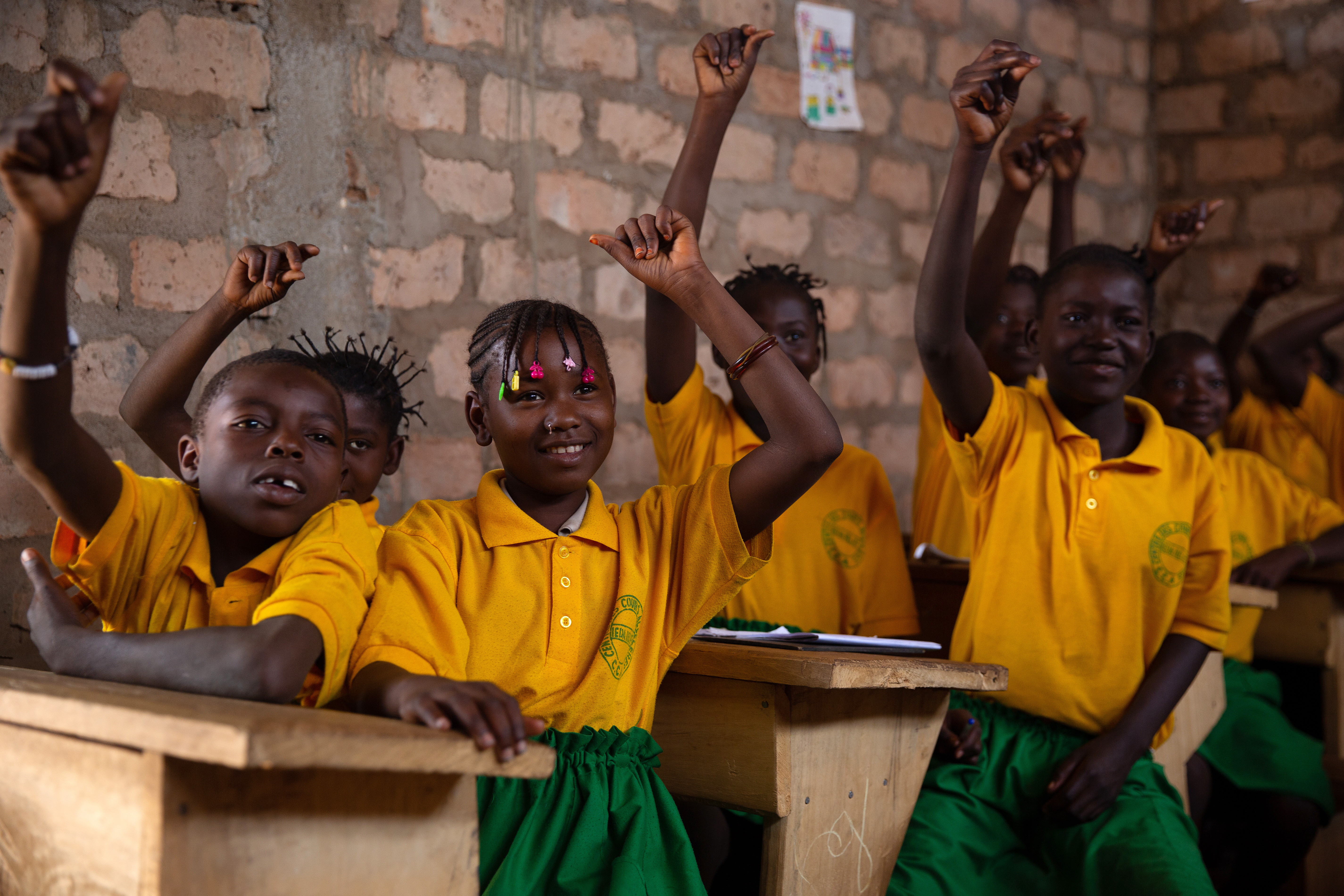Press Statement: Urgent Appeal for New Funding for Lost Generation of 30+ Million Displaced and Refugee Young People

PRESS STATEMENT
For Immediate Release
February 19 2019
Urgent appeal for new funding for lost generation of 30+ million displaced and refugee young people
** Two major programmes launched this month to help the 75 million children without education trapped in emergencies and crises
Gordon Brown, the United Nations Special Envoy for Global Education, speaking at the United Nation headquarters in New York said:
“I am here today to speak up for the 99 percent of the world’s young refugees – the lost generation who are now becoming, to us, the invisible generation – who will never get a place in college or in higher education. And to speak for the 80 percent of refugee teenagers who will never get a secondary education.
A lost generation is not only identified by empty classrooms, silent playgrounds and short, unmarked graves. A lost generation is one where hope dies in those who live.
The urgency comes as 2019 is starting with escalating crises:
- the estimated 3 million exodus from Venezuela – the largest in the history of Latin America and the Caribbean;
- the half a million out-of-school children living in the Central African Republic (CAR);
- the need to reopen 1,000 schools in Afghanistan where there are still 3.7 million out-of-school children, more than 2 million of them girls;
- and the ongoing refugee crises as result of the Rohingya, Syria, Yemen and South Sudan conflicts.
The desolation of the lost generation is so extreme that there have been reports last autumn from the Moria refugee camp, where there is no formal education on offer to thousands of young people, that two young boys had attempted suicide. At ten, when life should be in front of you – full of hope and excitement at every new dawn – young boys are so devoid of hope that they attempted to take their own lives.
These young people are no longer only the lost generation, they are the invisible generation. And we must do more.
On Thursday February 21, the Education Cannot Wait Fund (ECW) – headed by Yasmine Sherif – and a coalition of partners will launch a program for safe and reliable education for 500,000 children in Afghanistan, including 325,000 girls.
The following week, on 27 February in the Central African Republic, ECW, the government and a coalition of partners will launch a new three-year education response program to reach an estimated 900,000 children – half of whom are girls – to address the violence and displacement that has left nearly half a million children out of school.
This follows the multi-year program in Uganda, launched in September, to help with the influx of South Sudanese refugees, which has already brought $70 million in additional resources through the coordinated multi-year approach.
ECW aims to catalyse a total $1.8 billion in education financing by 2021. This includes mobilizing $570 million by 2021 for the Trust Fund which will support rapid responses, global goods and seed funding investments to catalyse an additional $1.1 billion of in-country financing for multi-year programmes to be rolled out in ECW’s 25 priority countries.
Current investments will soon reach 2.5 million children – with 1 million children covered by the end of 2018 and 1.4 million in new programs announced by the end of this month.
Already ECW has invested $134.5 million in 19 crisis-affected countries, including in 16 emergency responses.
It is time to count the cost of a decade of disruption:
- 12 million child refugees and rising
- More than 30 million displaced children in total – with Venezuela, CAR, the DRC, South Sudan, Pakistan, Myanmar and Syria some of the biggest numbers
- 75 million children with education disrupted because of conflict and emergency
People – children – are not broken just by the wave that submerges the life vest or the convoy that does not make it to the besieged town. They are broken by the absence of hope – the soul-crushing certainty that there is nothing ahead for which to plan or prepare, not even a place in school.
What holds them back is not just their location, their homelessness, and their poverty – but the death of their dreams.
The only way to reach the Sustainable Development Goal (SDG) of every child at school is for a child’s real passport to the future stamped in the classroom – and not at a border check post.
So today I propose:
First, let us expand Education Cannot Wait and recognize that committing to the SDG on education for all means committing to education without borders – the right of even the stateless and the displaced child to a quality education.
And second, for the long-term, we must support the International Finance Facility for Education, which is designed to serve the 700 million children and youth living in lower-middle-income countries, where the majority of out-of-school and displaced children reside. The facility is advancing rapidly with a high-level event scheduled in April where prospective donors will agree to constitute what could be a $10 billion fund this year.
—Ends—
Notes:
- According to UNHCR, the number of forcibly displaced people is 68.5 million. Among them are nearly 25.4 million refugees, over half of whom are under the age of 18. Today 1 out of every 110 people in the world is displaced.
Source: UNHCR Global Trends,unhcr.org - A report from Médecins Sans Frontières says that MSF teams are seeing multiple cases each week of teenagers who have attempted to commit suicide or have self-harmed. In group mental health activities for children (aged between six and 18 years) between February and June 2018, MSF teams observed that nearly a quarter of the children (18 out of 74) had self-harmed, attempted suicide or had thought about committing suicide. Other child patients suffer from panic attacks, anxiety, aggressive outbursts, constant nightmares or voluntarily become mute.
The report by Theirworld, Safe Schools: The Hidden Crisis, showed that by 2030, 622 million – nearly a third of all children that will be alive at that point – will live in countries where education is under threat from war, endemic high violence, or environmental threats. In the absence of increased investment and delivery of safe schools and learning environments, three of every four young people in these countries are projected to be unequipped with the skills to participate fully in society and the economy.
ABOUT EDUCATION CANNOT WAIT (ECW)
Education Cannot Wait is the first global movement and fund dedicated to education in emergencies and protracted crises. It was established during the World Humanitarian Summit in 2016 by international humanitarian and development aid actors, along with public and private donors, to help reposition education as a priority on the humanitarian agenda, usher in a more collaborative approach among actors on the ground and foster additional funding to ensure that every crisis-affected child and young person is in school and learning. Based on the recognition that continuous access to quality learning is a priority for children and families affected by conflicts, natural disasters and displacement and that no organisation can do it alone, ECW comes as a ground-breaking initiative bringing together public and private partners eager to work together differently and mobilise the funding required to deploy immediate and sustainable programmes tailor-made to the educational needs of these children.
www.educationcannotwait.org
ABOUT THE INTERNATIONAL FACILITY FOR EDUCATION (IFFED)
The International Finance Facility for Education is a groundbreaking way to finance education in countries around the world. By multiplying donor resources and motivating countries to increase their own investments, the Facility will unleash tremendous new funding streams for education. The Facility has the power to help tens of millions of children go to school and prepare millions more young people for the future of work.
The Facility is a recommendation of the Education Commission, put forward in The Learning Generation report released in September 2016. In the first round of funding, donor countries will provide the Facility with about $2 billion in guarantees, which will then be leveraged to create up to about $8 billion in new financing. By blending this financing with grant funding, the Facility would help mobilize more than $10 billion for education. www.educationcommission.org
For more information contact: Francois Servranckx, at fservranckx@educationcommission.org
Education Cannot Wait:
Ms. Anouk Desgroseilliers, adesgroseilliers@educationcannotwait.org +1 917 640-6820
For Press Inquiries:
Anouk Desgroseilliers:
adesgroseilliers@un-ecw.org
+1-917-640-6820
Kent Page:
kpage@unicef.org
+1-917-302-1735



